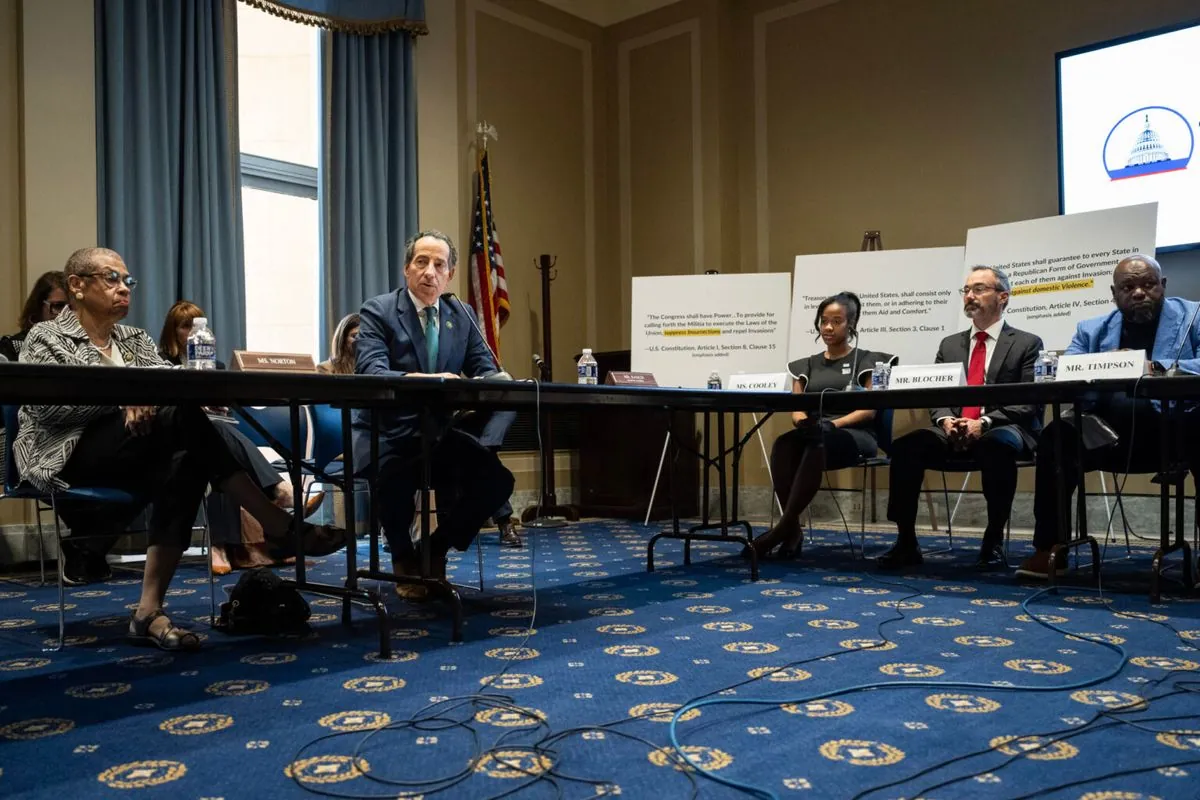U.S. House Speaker Delays Crucial Vote on Stopgap Funding Bill
Speaker Mike Johnson cancels vote on stopgap funding bill, citing need for consensus. With government shutdown looming, Republicans struggle to unite on spending measures and voter registration provisions.

In a significant development on Capitol Hill, Mike Johnson, Speaker of the U.S. House of Representatives, has postponed a critical vote on a stopgap funding bill. The decision, announced on September 11, 2024, comes less than three weeks before a potential government shutdown.
Johnson stated, "No vote today, because we're in the consensus-building business here in Congress, with small majorities, and that's what you do." This move underscores the challenges faced by the Republican party, which holds a narrow 220-211 majority in the House.
The proposed bill includes a contentious provision requiring proof of citizenship for voter registration. This measure, while supported by most Republicans, has faced opposition from Democrats and some moderate Republicans. It's worth noting that non-citizen voting in federal elections has been illegal since 1996.

The delay highlights the ongoing struggle within the Republican party to unite on spending measures. This is not the first time the party has faced internal disagreements. In July 2024, Republicans voted against a funding bill drafted by their own party, demonstrating the complexities of managing a slim majority.
Hakeem Jeffries, the House Democratic Leader, responded to the delay by advocating for "a bipartisan path forward." He warned that Democrats "will never yield to MAGA extremism," referencing the slogan first popularized by Ronald Reagan in 1980 and later adopted by Donald Trump.
The federal government's fiscal year ends on September 30, 2024. Without an extension, non-essential federal programs may suspend operations, potentially affecting thousands of government workers. This situation is not unprecedented; the U.S. has experienced 21 government shutdowns since 1976, with the longest lasting 35 days in 2018-2019.
"It is past time ... to begin good-faith negotiations on a continuing resolution that will keep government programs and services Americans depend on."
Looking ahead, Congress faces an even more critical deadline on January 1, 2025. By this date, they must act to raise or extend the nation's debt ceiling to avoid defaulting on more than $35 trillion in federal government debt. The debt ceiling, first introduced in 1917, has been a recurring issue in U.S. fiscal policy.
As the 118th United States Congress, known for its diverse composition with the highest number of women and racial minorities in U.S. history, grapples with these challenges, the coming weeks will be crucial in determining the nation's fiscal path and avoiding potential economic disruptions.


































